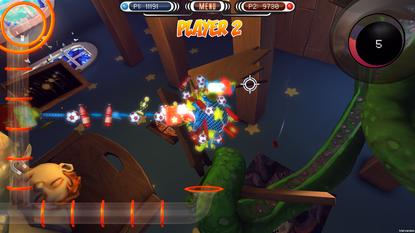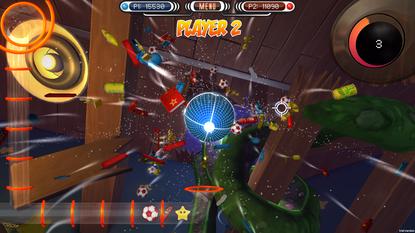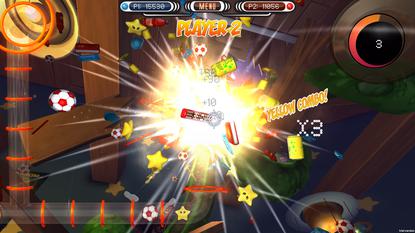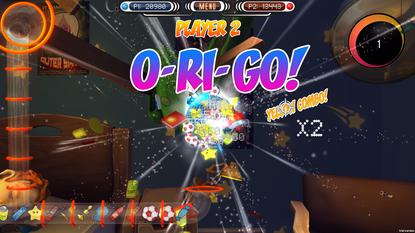Jigoku - Game Designer & Unity Developer
Great gameplay makes use of every aspect of the game in ways sensible to the lore.


Title: Origo!
Genre: Competitive Build-n-Bash
Engine: Unity 4
Platform: PC
What it is:
Origo! is a two-player, hotseat, construction game based on a concept from FatShark. The goal of the game is to score higher than your opponent. Score is gained by firing assorted colored objects a gridded sphere, the Origo. Objects will stick to the Origo and each other and create combos if the objects are of the same color, giving the player more points. Bombs and magnets can also be fired to blow objects away from each other, keeping large combos from your opponent.
How it came to be:
- The goal of the project was to create a Build-n-Bash, hotseat game based on the concept received from FatShark.
- Development time was seven weeks.
- Seven students were involved: three designers and four artists. No programmers.
- With it's unique game mechanics the jury from FatShark said they had a lot of fun playing Origo! but that they were not quite sure why they enjoyed flinging pencils and flashlights at the Origo as much as they did.
My responsibilities:
- Game Design
- Gameplay Design
- Scripting (C#)
- Particles (Shuriken) & VFX
- Optimization
Gameplay Video
Screenshots
Basic Game-Mechanics
Build anything
During each turn the current player is given 30 randomly selected projectiles. Most of these are various objects in one of three different colors (red, yellow and blue). These will attach to the Origo and other objects attached to the Origo. This allows the player to build long chains of objects.
Color combos
By stacking objects of the same color on top of each other the current player will build a color combo. Combos give exponentially more points than single objects and are key to achieving a high score.
Destruction
There are also two special projectiles, bombs and magnets. Both of these allows the player to destroy combos in order to keep them from their opponent. Bombs explode upon collision and push nearby objects away. Magnets pull along objects they pass by and explode after a few second. After being pushed away objects will get pulled back towards the Origo, allowing for even more points when they attach once again.
Scripting
Projectile gravity
This script simulates gravity between a projectile and all objects in an array. In OriGo! we only use a single object instead of multiple gravitational bodies but the system has support for more than a single gravitational object.
The following video shows how the game could look with four gravitational bodies, applying appropriate forces on each projectile in real time. In this video the projectiles are affected by gravity right away when launched. In the normal game the projectiles are only affected by gravity after being detached from the Origo.
Magnetic projectile
This script is used on the magnetic projectiles to detach and attract other projectiles. It mostly works like the projectile gravity to the Origo, only instead of an array of gravitational bodies each magnetic projectile works independently.
Combo detection
This script detects the size of a combo by finding the top parent in the current hierarchy of game objects. When the parent no longer matches the starting projectile's color the script goes through all of the top parent's children. For each child of a matching color the child's children are checked and 1 is added to a counter. After all children have been checked the counter's value is returned.
Stefan Alfredsson - Designer & Unity Developer - E-mail: stefan@jigoku.se - Mobile: +46 70 754 8228



